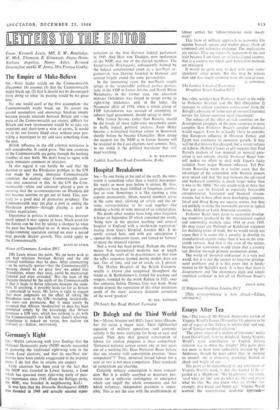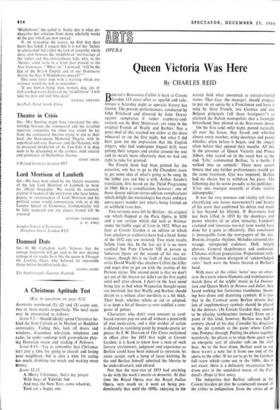Essays After Tea
Sm,—The tone of Mr Patrick Anderson's review of Virginia Woolf's Essays (November 11) appears to be one of regret at her 'failure in scholarship' and neg- lect of 'familiar modes of criticism.'
`The prime object of a student of literature,' writes Lord David Cecil, `is to be delighted.' Surely Virginia Woolf's main contribution to English literary criticism was to share het delight? This point does not seem to have been sufficiently stressed by Mr Anderson, though he does admit that, in showing us around, 'she is vivacious, sparkling, flushed of cheek and bright of eye. . . '
The point to be remembered in any assessment of Virginia Woolf's work, is that she wanted to be re- Larded as a 'Highbrow.' We Highbrows,' she wrote. 'read what we like and do what we like and praise what we like. We also know what we dislike—for example, thin bread and butter tea.' Virginia Woolf scorned the conventional academic approach- 'Middlebrow,' she called it. Surely this is what dis- tinguishes her criticism from many scholarly works of the past which are now unread.
If, on re-reading the essays, we find that their lustre has faded, I suggest that it is not her 'failure in scholarship' but rather the lack of sympathy which must exist between the 'middlebrow' meritocracy of the 'sixties and this extraordinary lady, who, in the 'thirties, could write in a letter (not posted) to the New Statesman, —What, sir," I demand, "will be the fate of the British Empire and of our Dominions Across the Seas if Middlebrows prevail?"'
This same letter ends with a warning which any reviewer would do well to remember : 'If any human being, man, woman, dog, cat, or half-crushed worm dares 'call me "middlebrow" I will take my pen and stab him, dead.'
BARBARA ASPELING
Sea Park, Natal, South Africa































 Previous page
Previous page